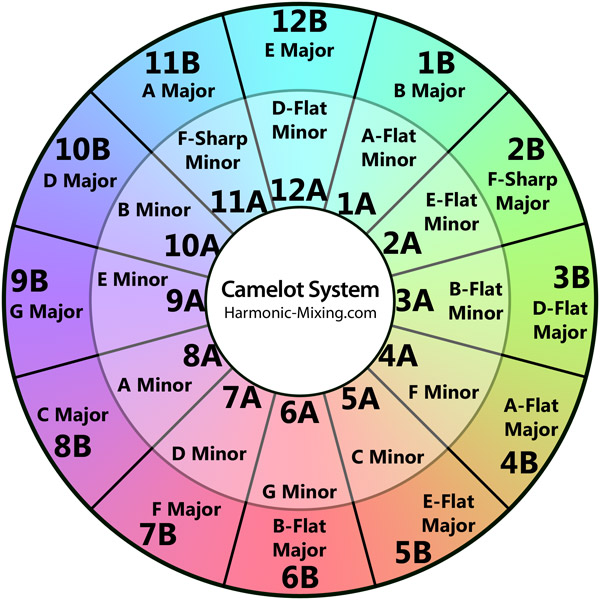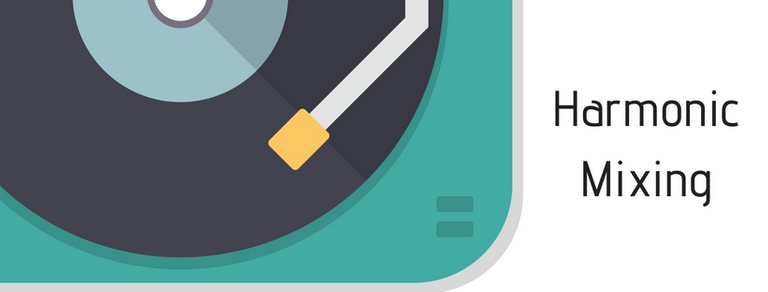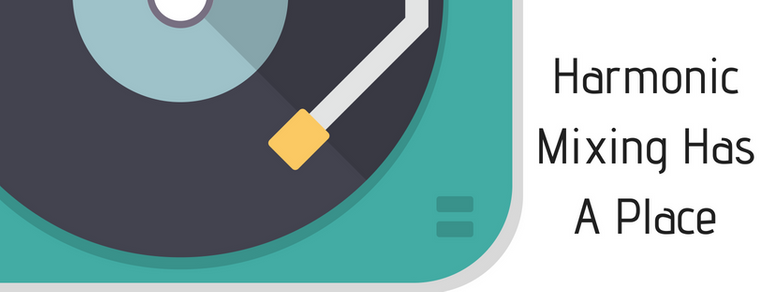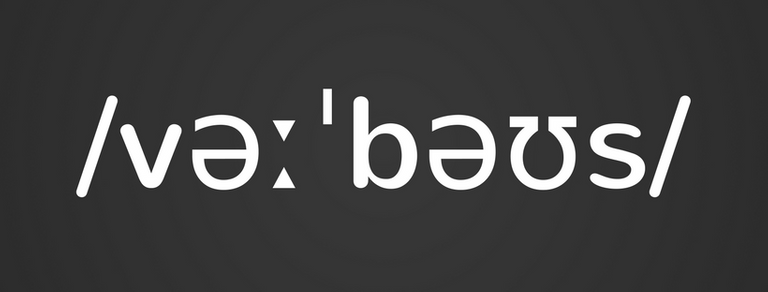Recently, I found myself in a heated debate about Harmonic Mixing. A seemingly innocuous question had been posted by a contact on Facebook, namely asking how much people valued harmonic mixing on a scale from 1 (not at all) to 5 (very much so). There was an overwhelming consensus of 4's and 5's on the thread until I waded in--like the proverbial cat amongst the pigeons--with my hot take.
Before we get under the skin of the criticism, first you need an explanation of what harmonic mixing is. For the purpose of simplicity, we are strictly talking about mixing digitally using key-locked music. Naturally pitch sliders on CDJs and turntables change the key of music, which adds an extra layer of complication in terms of calculating key.
Harmonic mixing is a technique that is mainly pushed by music tagging specialists Mixed In Key. Obviously, with their bread and butter being the process of key detection in music, they are incredibly invested in this technique. It isn't some randomly created principle though, and its roots are in traditional music theory.

The central principle behind harmonic mixing revolves around something called the Camelot Wheel. Pictured above, it maps out both major and minor keys on concentric rings. The rule of thumb is that you can either remain in key, move one step to the left or right, or shift from the major key to minor key within the same "hour" and vice versa. So far, so logical.
With Mixed In Key in effect--or your purchased digital music already benefiting from existing analysis in its metadata--you gradually carve up your collection, ready to make arrangement decisions based on the Camelot Wheel.
One of the claims behind harmonic mixing is that it enables creativity, allowing you the ability to deliver emotive changes in tone through established musical techniques. This claim is what I dispute.
When you selecting a track to play, based on harmonic mixing, you are immediately disregarding a huge percentage of your music collection based on key. DJing has always embraced an element of flair, it is why we celebrate certain DJs for the selection and technical abilities they bring to the table. These artists have the ability to, in the beat of a bar, take two tracks that you would not imagine being able to go together and totally whisk the rug away from beneath your feet.
According to the principles of harmonic mixing, these moments should not exist. Harmonic mixing is actually restricting creativity in terms of track selection.
Going further down the rabbit hole, Mixed In Key now offer Energy Level analysis, grading the tracks from low to high energy on a scale of 1 to 10. Their claim being that you can use this to further refine your track selection to distribute a gradual build of energy throughout your set. In their example, they cite Skrillex, Martin Garrix and Calvin Harris as examples, entities far from being known as critically lauded DJs. They go on to applaud consistent 7 or 8 energy level sets and thumbs up a level of 6 as "perfectly danceable".
One detrimental aspect here is that it starts to introduce a mindset that your set must be blasting the roof off at every moment. Ross From Friends recently summarised this better than anyone:

Then there is the creativity impact. After taking the cleaver to your collection based on key, you are now encouraged to hack away further in fear that your energy level will destroy your set, or not meet some sort of unwritten guideline of goodness. All of which seems to completely disregard flair and emotion in track selection.
Instead, let us look at one of the foremost figures in terms of selection, Ricardo Villalobos. Fabric London did a fond retorspective of choice moments from his sessions in their Room One. It makes you think, where would Global Communication '14:31' fit in the energy rankings? How would John Williams 'Imperial March' from the Star Wars saga or Aphex Twin 'Heliospan' from his seminal 'Selected Ambient Works 85-92' album rank in terms of selection criteria?
By adhering rigidly to rules, these moments would be lost and we would be in a world where algorithm and DJ are interchangeable. I imagine that somehow Call Super's superb melt down from post-peak techno into ambient and out through twinkling electro--on his stellar Fabric mix --was never crafted. Or that Objekt's three movements of inspired genius on Kern Vol. 3 was actually a rote techno workout. It is what the letters s, m and h were invented for.
Don't take this as a complete disregard or disdain for harmonic mixing. These moments occur in DJ-ing all the time as happy little accidents. Although we should keep them as precisely that rather than begin to erect walls and silos around our music collection.
For curiosity's sake, I went through Beatport and found the keys for all the tracks in this mix I recently shared to dSound. Out of the 18 tracks used, 13 did not adhere to the rules of harmonic mixing as dictated by the Camelot Wheel. If I were a harmonic zealot, this mix would not exist.
Nothing can replace intuition and a good ear. Fundamentally, it takes a lot of time, a lot of effort, and a lot of mistakes before you can discover your own truth in terms of track selection. Embrace feeling and embrace emotion rather than losing all the humanity by chasing an illusory goal of technical perfection. It is a much harder skill to learn than having a set of progressions prescribed to you, however the rewards for both DJ and crowd and much more worthwhile.






To hell with harmonic mixing! The world's greatest DJ's started on pure vinyl and even though most of them use digital mediums now, imagine the groundbreaking innovation that would be lost if it weren't for complete and total experimentation and rule breaking, e.g., using a turntable for mixing or the art of turntablism. Sure, knowing keys can help with finding samples and matching loops and what not, but it should never ever be a rule of thumb. I do mix according to BPM since having gone digital, but I always kept my vinyl in order of the feel of the tempo. That just helps keep the genres somewhat close together. Great post, keep it coming!
Geez I am not even a DJ and this entire concept still pissed me off. The truly great moments across all genres of music are when the expectations of the brain are teased and tickled, with one thing set up and then another thing coming, and it is these moments that cause the brain to light up like a circuit board and fire on all cylinders as it catches up to what is going on and rejoices in the unexpected (but perfect) change in melody, or timing, or whatever. Great post!
You know what, I don't have a problem with the actual philosophy of it. It was the sheer volume of people saying "oh yeah, harmonic is a 4 or 5 for me". I wonder if they were getting "harmonic" mixed up with "in tune", because they have vastly different implications!
The idea that you could be omitting something like 90% of your collection when going from one track to another is just madness to me. I wish I'd used this phrase in the text now but it is like a DJ set's version of The Loudness War.
We erect so many mental barriers - I can't play this genre and that genre, I can't play music by this artist or from that label. Got to tear those down sometimes.
Well the funny thing to me is though that it is such a limited philosophy even if you were going to base song selection on music theory. Simply moving around a half step in either direction or switching from major to minor is ignoring all the other ways chords and keys relate to each other. At the very least, where is the switch to the dominant or sub-dominant key (the 5th or 4th note from the root note, respectively), which would right there introduce WAY more complexity to such a scheme? And which of course is very pleasing to the ear.
100 years later, I reply.
I like the philosophy of this and I get what it is doing, but I think the exhaustive adoption of it to the exclusion of any other selection is really dangerous. Plus you run the risk of music starting to become developed that has this in mind. You get some proper Lego tracks out there. If you had the vinyl, you'd be able to look at the grooves and see "intro, break, build, drop, big impact, break, outro" and just slot tracks in end to end. It sounds good in execution but you completely lose the emotional aspect of things.
I also have another bugbear in over-engineered mixes. I've listened to a few in the last two years where the tracks themselves have been absolutely murdered as the DJ goes to town on them.
Deetron's DJ Kicks from earlier in the year is a bit like that. Starts off with an all time favourite track of mine and it gets absolutely destroyed in the way it is used. Not in the good way. Entire mix struggles to settle on so many fronts.
The new energy level consideration is intriguing, though reductive. Bottling up the energy from a song into an integer value between one and ten is lacking the subjective intent that comes with different forms of energy. I can think of (what may be considered) some tens, but they have entirely different timbres, tones, and attitudes represented. Great read, thanks for sharing.
I’m currently listening to a forthcoming mix from a hype DJ producer (I am embargoed) that certainly doesn’t subscribe to any of this.
Hi fourfourfun,
LEARN MORE: Join Curie on Discord chat and check the pinned notes (pushpin icon, upper right) for Curie Whitepaper, FAQ and most recent guidelines.
Cool, i want one also
very nice article you made here.. I did knew and know what harmonic mixing is and having the experience from the field in many different ways as a dj (resident / booked artist) i can tell you that these ''rules'' are completely bullshit and nobody cares about it unless someone is a an operah musician or so.. because: A set doesn't need to be perfect and definetly everyone needs to fistpump on the set. this way of thinking with harmonic mixing makes dj;s restricted in their creativity in many ways because they follow ''rules'' while a good dj doesn't know rules other than beatmatching perhaps. Also nobody hears it anyway and if it is hearable that a key is different, then a pitch up already puts it in a different key... also harmonic mixing is something for non beat music with long chords and spheres, and a key is a key but which one? most songs are in an f or A / f# or F key depending on the style.. but what is a key? if a dj tries to be perfect then that dj should use ableton for live / presynched sets or priorly will mix in the more quite parts in the songs... finally i can tell you that a dancing crowd is the only positive sing that is needed to know if people enjouy... thats what is the main of a party... if everyone sits what is the purpose of a dj then (at partys) ;) good read, good blog and i hope my respond makes sense to you... like avian here, i used to have sets that range from 75 up to 150 and above sets too, mainly have spinned music club dance house electro.... with longs and short breaks, buildups etc... so harmonic mixing i would for all just advice to not think about it too much and keep the play the play